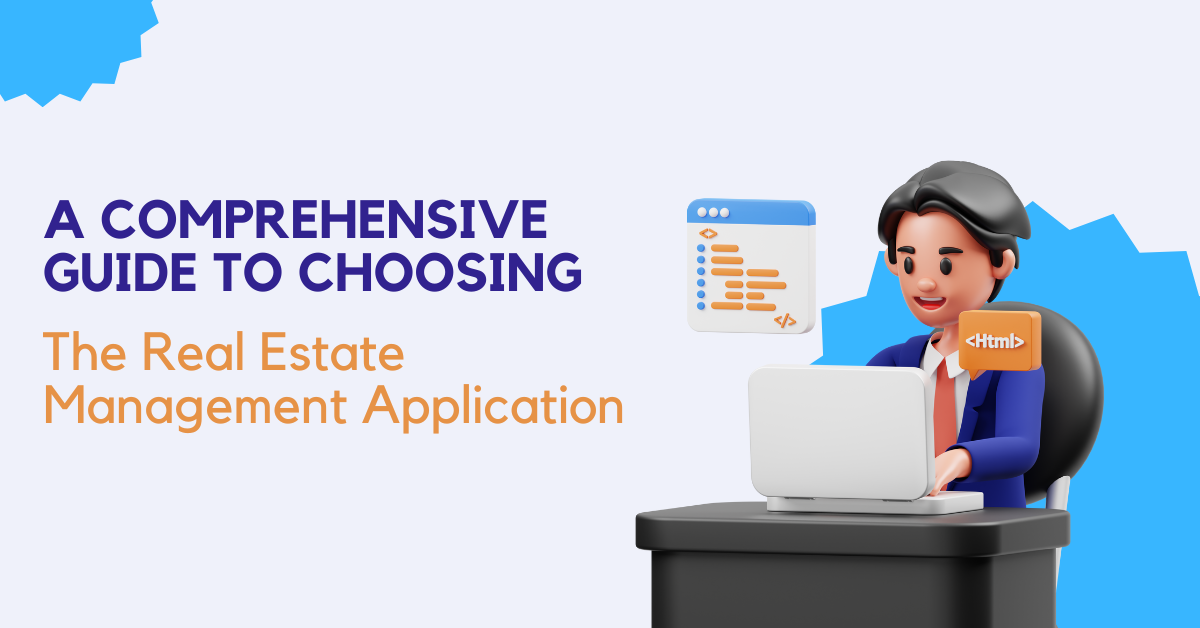In today’s competitive real estate market, simplifying procedures and increasing efficiency are critical to success. The real estate management application plays an important role in accomplishing these objectives. The appropriate software may improve the way property professionals manage their portfolios by automating chores, centralizing data, and delivering valuable insights.
However, with so many options available, selecting the correct real estate management software can be difficult. This detailed guide will help you navigate the selection process and make an informed decision.
Understanding your needs is the first step in selecting the right real estate management application.
Before you begin your search for the ideal real estate management program, take a step back and evaluate your demands and requirements. This introspection will pave the way for a successful software selection process. This guarantees that you select a solution that optimizes your productivity and promotes long-term success.
1. Property type:
Residential: Do you manage single-family houses, apartments, or student housing? Residential software is often used to manage tenants, collect rent, and handle maintenance needs.
Commercial: Do you manage office buildings, retail spaces, or industrial complexes? Commercial software may require capabilities such as tenant communication tools, lease administration, and space planning.
Mixed-Use: Do you manage a variety of property types? Choose software that meets your different demands, and has capabilities applicable to both residential and commercial buildings.
2. Portfolio size:
Small Portfolio: If you manage a small number of properties, you may prioritize affordability and convenience of use.
Mid-Sized Portfolio: Consider scalability that allows for more complexity as your portfolio increases.
Large Portfolio: Large portfolios require sophisticated reporting capabilities, multi-user access, and enterprise-level functionality.
3. Key Tasks:
Rent Collection: Streamline your financial processes by automating rent payments and accepting online payments.
Tenant Screening: Conduct background checks and analyze credit scores to identify qualified tenants.
Maintenance Management: Track and manage maintenance requests efficiently to ensure prompt fixes.
Types of Real Estate Management Applications:
Once you have a clear knowledge of your requirements, you can begin looking at the various types of software available.
1. Cloud-based.
Cloud-based real estate management software is the most widely used choice. It is available from any internet-connected device, making it ideal for property managers on the go. Furthermore, cloud-based ERP software is automatically updated by the vendor.
Pros
- Accessibility on any device
- Automatic updates
- Scalability
- Cost-effective
2. On-premise.
On-premise real estate management software is installed on your server. This increases your control over the software and your data. However, it necessitates additional IT resources for maintenance and updates.
Pros
- Increased control over software and data.
- Can be tailored to your requirements.
- No internet connection is necessary.
3. Open-Source
Open-source real estate management apps are completely free to use and customize. However, installation and maintenance require programming knowledge.
Pros
- Free to use
- Customizable
- There is no vendor lock-in
Which type of software is best for you?
The most appropriate real estate management application for you is determined by your specific requirements and budget. If you are a small property manager with limited IT resources, cloud-based ERP software could be your best option. If you are a major property manager with extensive IT resources, on-premise or open-source software may be a better fit.
Key Features to Consider:
Core features are required for property management.
1. Tenant Management:
Keep track of all leases, contracts, rent payments, and tenant communications.
2. Rent Collection:
Automate rent payments, including online payments and late rent reminders.
3. Maintenance Management:
Submit, track, and resolve maintenance requests quickly.
4. Financial Reporting:
Prepare reports on income, expenses, and financial performance.
5. Accounting Integrations:
Integrate with accounting software to automate bookkeeping.
Advanced features improve efficiency and performance.
1. Marketing and Lead Management:
Generate leads, handle applications, and improve tenant onboarding.
2. Document Management:
Lease agreements, invoices, and other papers can all be stored and managed electronically.
3. Reporting and Analytics:
Create customized reports and receive insight into critical performance metrics.
4. Mobile App Access:
Access property management data and operations via your mobile device.
5. Customizable workflows:
Set up workflows to automate operations and optimize procedures.
6. Integrations with Other Tools:
Integrate with your existing applications, such as CRMs and marketing automation solutions.
7. API Access:
An application programming interface allows users to access and manage data.
Final Thoughts
Choosing the correct real estate management application is a worthwhile investment. It can boost your company’s productivity and profitability. By taking a planned and informed approach, you can choose a solution from a credible custom software development firm. Remember that this is a long-term decision, so devote time and attention to the selection process. Ensure you select the best real estate management application for your developing needs.




